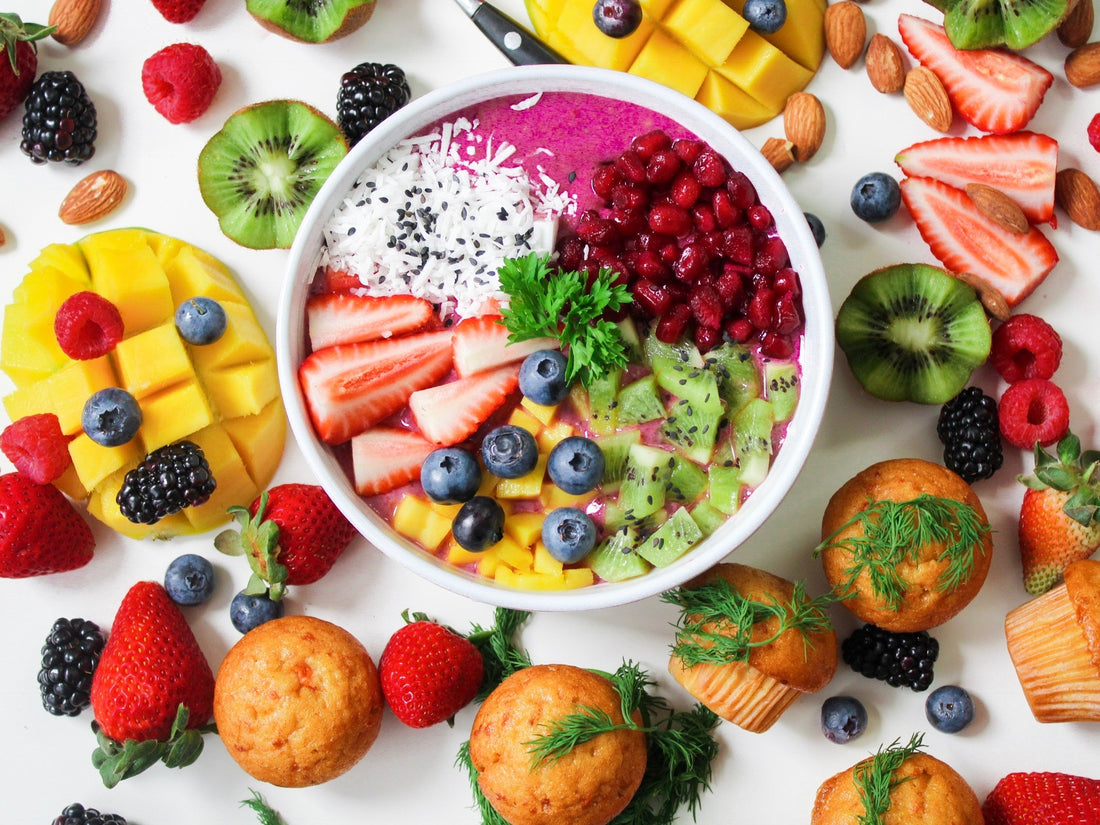Many women experience painful or bothersome symptoms during their period. Be aware that certain foods can alleviate these symptoms while others can actually accentuate them. Here is the list of foods to favor during the period of the period to feel at the top!
Water
It's no secret that it's always important to drink plenty of water, and this is especially true during your period. Staying hydrated can reduce your chances of getting headaches from dehydration, a common symptom during your period.
Fruit
Fruits that are high in water, like watermelon and cucumber, are great for staying hydrated. Sweet fruits can help you curb your sugar cravings without eating a lot of refined sugars, which can cause your glucose levels to rise and then fall.
Leafy green vegetables
It is common to experience a drop in your iron level during your period, especially if your menstrual flow is heavy. This can lead to fatigue, body aches and dizziness.
Leafy green vegetables such as kale and spinach can help alleviate this iron deficiency. Spinach is also rich in magnesium.
4. Ginger
A warm cup of ginger tea may improve some symptoms of periods. Ginger has anti-inflammatory effects, which can soothe sore muscles.
Ginger can also reduce nausea. Few studies confirm this, but a 2018 study found that ginger was effective in reducing nausea and vomiting during the first trimester of pregnancy.
Don't consume too much ginger, though: Consuming more than 4 grams in a day can cause heartburn and stomach upset.
5. Chicken
Chicken is another food rich in iron and protein that you can add to your diet. Eating protein is essential for your overall health, and it can help you stay full during your period, by curbing cravings.
6. The Fish
Rich in iron, protein and omega-3 fatty acids, fish is a nutritious addition to your diet. Consuming iron will counteract the drop in iron levels you may experience during your cycle.
According to a 2012 study, omega-3s can reduce the intensity of menstrual pain. Subjects who took omega-3 supplements found that their menstrual pain was reduced so much that they could reduce the amount of ibuprofen they took.

7. Turmeric
Turmeric is known as an anti-inflammatory spice and curcumin is its main active ingredient. A 2015 study looked at the effects of curcumin on symptoms of PMS and found that people who took curcumin had less severe symptoms.
8. Dark chocolate
A tasty and healthy snack, dark chocolate is rich in iron and magnesium. A 100 gram bar of 70-85% dark chocolate contains 67% the recommended daily allowance (RDA) for iron and 58% of the RDA for magnesium, so why deprive yourself?
9. Nuts
Most nuts are rich in omega-3 fatty acids and are an excellent source of protein.They also contain magnesium and various vitamins. If you don't want to eat nuts on their own, try nut butters or nut milks or add these ingredients to smoothies, yum!

10. Linseed oil
Each 15 mL of flaxseed oil contains 7,195 mg of omega-3 fatty acids and as mentioned above, omega 3 during menstruation is life and it reduces menstrual pain .
11. Quinoa
Quinoa is rich in nutrients such as iron, protein and magnesium. It is also gluten-free, so it is an excellent food for people with celiac disease. Plus, it has a low glycemic index, which means you're likely to feel full and energized for a long energy after eating it, a super food in short.
12. Yogurt
Many people get yeast infections during or after their period. If you are prone to yeast infections, foods rich in probiotics like yogurt can feed the “good” bacteria in your vagina and help you fight infections.
Yogurt is also rich in magnesium and other essential nutrients, such as calcium.
13. Kombucha
Yogurt isn't the only probiotic-rich food with anti-yeast benefits. If you avoid dairy, kombucha tea is a great alternative as it is a fermented food that is more widely available than ever. On the other hand, we try to avoid kombucha drinks that contain too much sugar.
Foods to Avoid
1. Salt
Eating a lot of salt leads to water retention, which can lead to bloating. To reduce bloating, don't add salt to your foods and avoid highly processed foods that are high in sodium.
2. Sugar
It's good to consume sugar in moderation, but eating too much can cause an energy spike followed by a crash. It can make your mood worse. If you tend to feel moody, depressed, or anxious during your period, monitoring your sugar intake can help regulate your mood.
3. Coffee
Caffeine can cause fluid retention and bloating. It can also exacerbate headaches. But caffeine withdrawal can also cause headaches, so don't completely cut out coffee if you're used to having a few cups a day.
Coffee can also cause digestive problems. If you tend to have diarrhea during your period, reducing your coffee intake may prevent this from happening.
4. Alcohol
Alcohol can have a number of negative effects on your body, which can exacerbate your period symptoms.
For example, alcohol can dehydrate you, which can make headaches worse and cause bloating. It can also lead to digestive issues, such as diarrhea and nausea.
5. Spicy foods
Many people find that spicy foods upset their stomach, giving them diarrhea, stomach pain, and even nausea. If your stomach has trouble tolerating spicy foods, or if you're not used to eating them, it may be best to avoid them during your period.
Some foods are good to eat during your period, while others can make your symptoms worse The foods you choose to eat or avoid will largely depend on your specific symptoms and food sensitivities.
If your periods are particularly painful, making it difficult for you to do anything, see a doctor.
.
